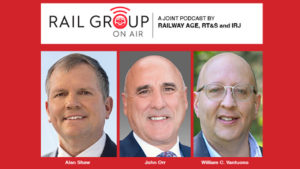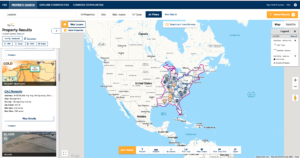Amtrak, TxDOT to study new service possibility
Written by jroodAmtrak and the Texas Department of Transportation agreed on the scope of a feasibility study for new Amtrak service between the Bossier City -Shreveport area in Northwest Louisiana and along the Interstate 20 corridor to Dallas and Fort Worth.
Members of the East Texas Corridor Council (ETCC) were joined by TxDOT and Amtrak officials to formally recognize the start of work to study new service by conventional trains with a maximum speed of 79 miles-per-hour.
The report by Amtrak will estimate order-of-magnitude capital requirements and operating costs needed to provide state-sponsored passenger rail service, with trains making up to seven intermediate stops and operating up to two daily round-trips. The study will consider factors such as potential schedules, train operating costs, revenue and ridership, railcar and locomotive requirements and capital needs for route infrastructure improvements to accommodate new passenger service.
Rail capacity modeling will be performed by Union Pacific, which owns much of the route. The rail segment between Marshall, Texas, and Fort Worth is served now by Amtrak Texas Eagle, as part of its Chicago-San Antonio/Los Angeles route with one daily frequency in each direction and intermediate stops in Longview, Mineola and Dallas.
TxDOT has requested the study evaluate schedules with potential new Amtrak stops at Centre Port/DFW Airport (along the Trinity Railway Express commuter route), Mesquite, Forney, Terrell and Wills Point. The stops TxDOT selects for inclusion in the final provisional schedules will depend on a number of factors, such as estimated ridership and revenue, community demographics and railroad operating issues. The costs of building new stations or improving existing facilities are not within the scope of the study, since those are considered to be local expenses.
TxDOT has received $265,000 in federal funds for the I-20 corridor study through the ETCC, which represents the communities and government agencies at the local and regional level in Texas and Louisiana.
“If the study shows evidence that state-funded Amtrak service should be considered, both state legislatures would decide if they should support an expanded service,” said Michael Franke, P.E., an Amtrak assistant vice president and leader of the Chicago-based study team. “We look forward to providing a report by the end of the year to aid in that decision-making.”





